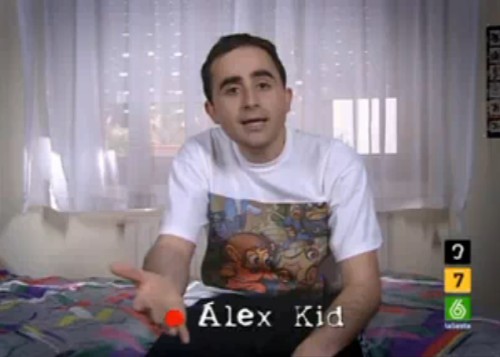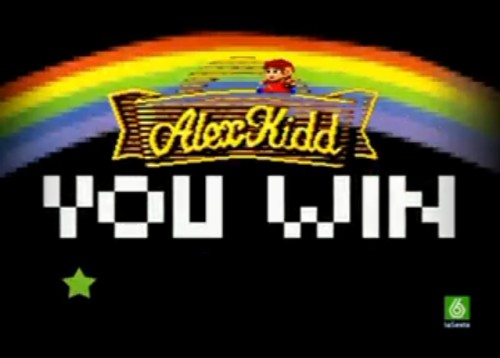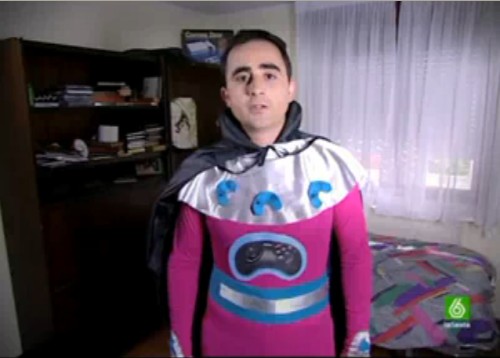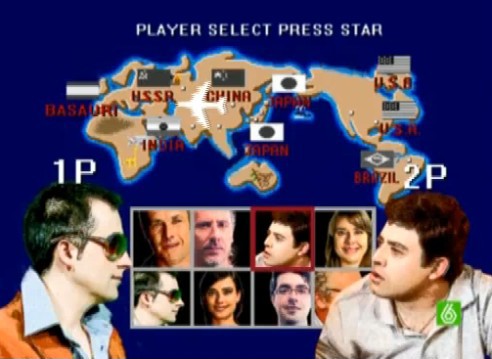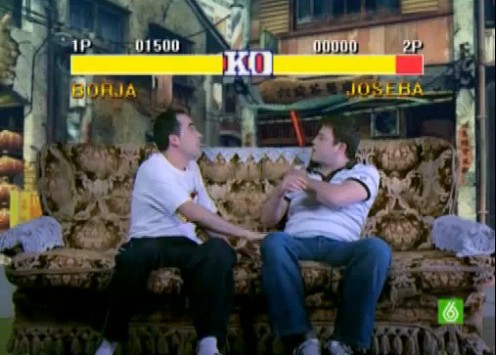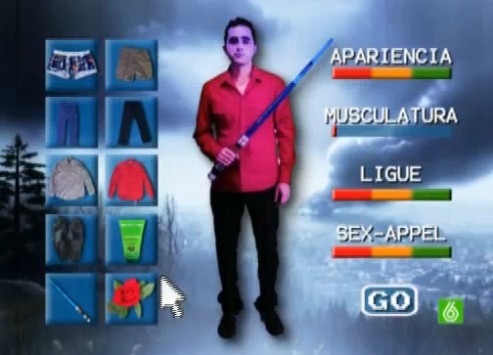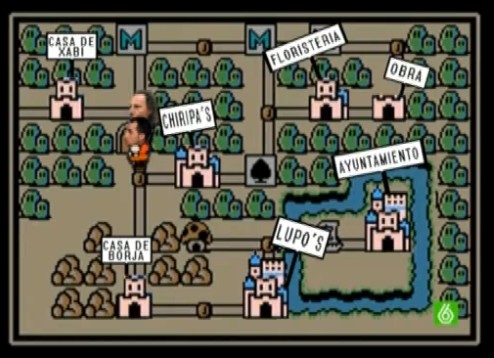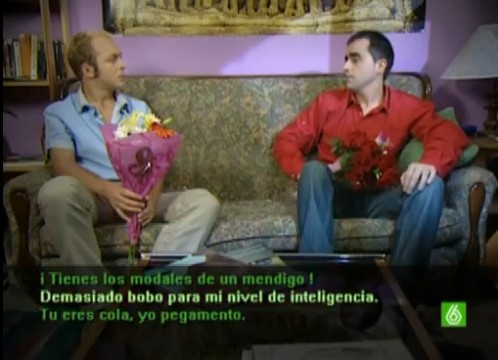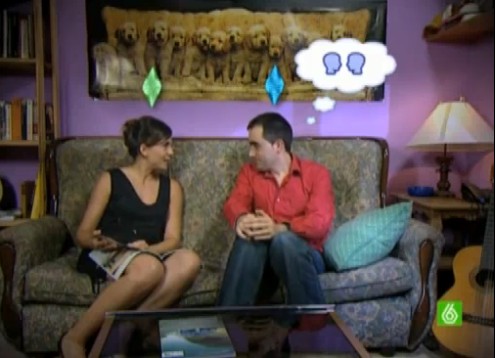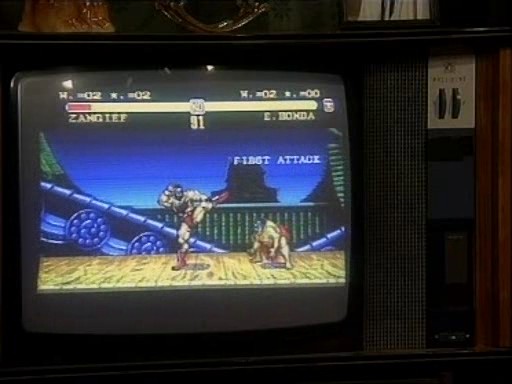I've mentioned this in the past, but I first got my start in PC gaming through the Sega CD. In retrospect, a lot of the ports were kinda bad, especially stuff like Monkey Island and Willy Beamish, both of which had horrible, horrible loads times. On the other hand, a few others actually had a few nice perks that weren't in the original version. Both Rise of the Dragon and Wing Commander had voice acting, and damned good voice acting too. Uber-ubiquitous voice actor Cam Clarke, who appeared in pretty much every 80s cartoon, plus others (younger fans will recognize him as the voice of Liquid Snake, DEAR BROTHER!) He played the main character in Rise of the Dragon, and the commander (the biggest speaking role) in Wing Commander.

Since the dialogue was now spoken aloud, you can no longer name your hero, but it created an odd inconsistency in a few places. In the PC version, you're asked to enter both your name and your callsign. In the Sega CD version, these both default to "Hotshot". That's okay for a callsign, but during the few times where they're supposed to call you by your name, they say your callsign instead. During the "game over" funeral scenes, they refer to you as "2nd Lt. Hotshot" (or whatever rank you are), which probably sounds ridiculous to anyone in the military.
The Sega CD Wing Commander also had a completely new soundtrack, entirely exclusive to this version. The opening credits the musicians as the same guys behind the original game - The Fat Man and another guy whose name I can't recall at the moment - so it's not like this was a bastardization or anything. It is strange that it was changed, given that Wing Commander was one of the first PC games to have a really notable soundtrack. The general opinion seems to be that it's rubbish, but I quite like it. It uses the PCM sampling of the Sega CD that sounds quite a bit better than the OPL3 FM synth found on Adlib/Soundblaster cards, which were typical of computers from the early 90s, if they had any at all.

On a personal level, the different music actually worked out well, though - Wing Commander II (released only on the PC) recycles a huge chunk of the music from the PC version of its predecessor. It was all new to me at the time, though, so it seemed like less of a cop-out. (The soundtrack wasn't the only bit of laziness in Wing Commander II, but we'll save that for another day.) I recorded a bunch of these with GENS since I couldn't find them anywhere on the internet. A handful of tracks are available over at the Wing Commander CIC, but those are only the redbook tracks that play during certain cutscenes.
Beyond the aural differences, the port really isn't very good. It's remarkably sluggish, and I didn't realize at the time that the game was supposed to play as slowly as it does. The PC version also runs at an incredibly inconsistent speed, which this one suffers from too. When you're only fighting a single enemy with no wingmen, it runs fine. But standard engagements usually have at least three or four other ships, usually more, so the whole game runs at maybe 25% of the speed it should. It does make it much easier, at least.
When I was in grade school, I had a friendly rival with one of my buddies - I was the Sega guy, he was the Nintendo guy. We often used Wing Commander as a sparing ground to which was better, which we eventually gave up once we convinced our parents to get PCs and moved on to Wing Commander Armada anyway. But back in the day, he swore that the SNES version was better, even though it lacked voices. I finally booted it up and...okay, the Sega CD version wasn't great, but the SNES one is much worse.
It technically runs a slightly more appropriate speed, but it accomplishes this at the expensive of smoothness. It's a remarkably choppy game, which is made more aggravating because there are several elements on the screen all moving independently from each other. The space debris, for example, moves smoothly, but the waypoint indicator does not. The radar moves similarly, which is a bit of a problem when you're trying to track down targets. But hey, the little red box that used to frame the targeted enemy is completely gone anyway, making the targeting system almost useless outside of using missiles. The alarms that blare whenever enemies have locked on with a missile is much louder, where it's nothing more than a flashing indicator in other versions.
There are other weird bits too. It only seems like you ever face off against a single foe at a time, even though there are multiple enemies around. It's especially odd when you're navigating through asteroid fields, because even though there are rocks flying around, they're just part of the background - you only ever dodge asteroids one at a time. It's very strange!
In order to fit the five meg game into a 1 meg cartridge, there's tons of details stripped out. The character portraits and the cutscenes are very obviously affected, but it's even more apparent in-game, where the number of frames for each ship have been cut down drastically. As a result, you only see ships from a very select set of angles, and it looks really, really wrong. There are undoubtedly a myriad of other issues that arose from both the limitations of the SNES and the shoddiness of the port programmers. (The SNES version was done by Mindscape, while the Sega CD one was done by Game Arts over in Japan.) The save function has been replaced with passwords, which is typical. The music (mostly faithful to the PC original, at least in composition) sounds like it was run through a MIDI to SPC conversion program and the instrument samples weren't properly adjusted at all. At least the new sound effects are much better than the tinny blips from the PC version. You can read more about some differences on this thread. The SNES version is the one that made it onto that EA Replay compilation for the PSP.
And there's Super Wing Commander, a total remake that was originally released solely on the 3DO, and later, only ported to the Macintosh, of all places. In many ways, it's a huge improvement over even the PC original. It seems to utilize the same improved engine as Wing Commander Armada, with a larger cockpit window that doesn't feel nearly as cramped, higher resolution ship sprites that are much less pixellated, and a "targeting lead" cursor that aids incredibly in aiming.
In-game, it's great, but out of the game? The whole look is much darker and more "realistic", using a lot of mid-90s CG design. Some of the cutscenes are ridiculous, like the takeoff scene, where your character is suited up via a complicated system of robotic arms, then jettisoned into a tube and elevated into the ship before taking off. Sometimes simpler is better, people! The characters now use portraits that look like touched up, digitized pictures of real actors, except they're animated in the same way as before - a static head shot, moving lips, and eyes that occasionally blink is a disturbingly robotic fashion. This version is fully voice acted too, except it's terrible.
I haven't recorded the 3DO voices or music, but I've uploaded a few tunes from the Sega CD version, since they didn't appear to be up at the Wing Commander CIC.

PC

Sega CD

SNES

3DO

PC

Sega CD

SNES

3DO














